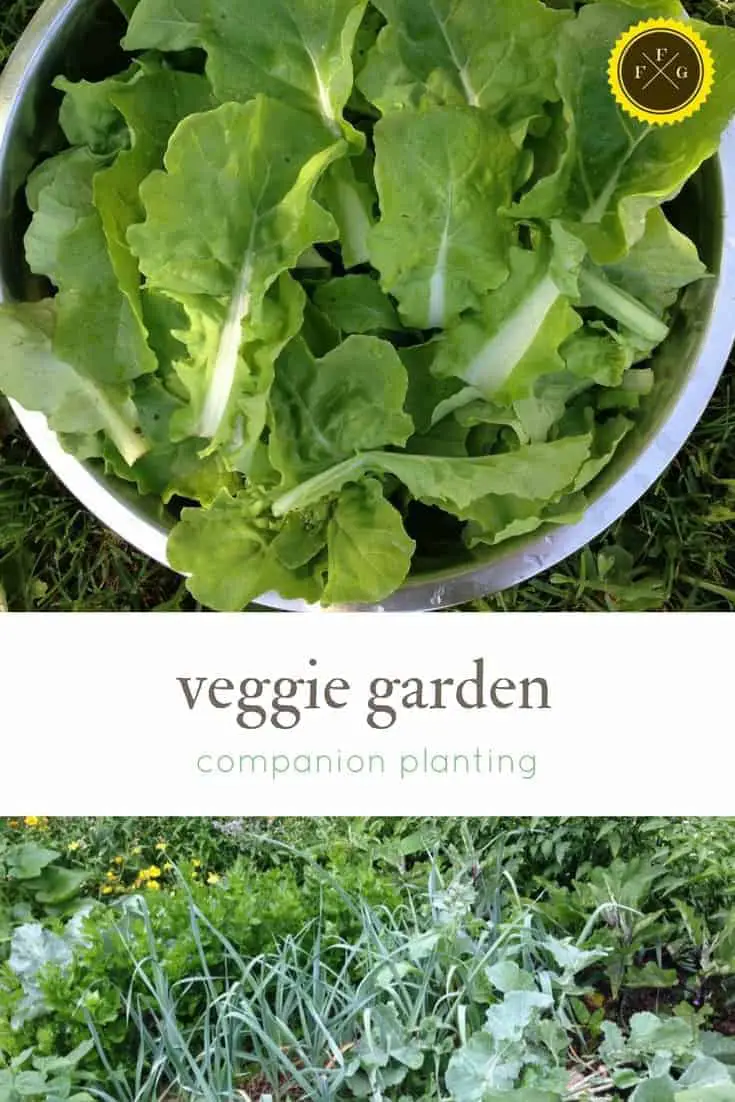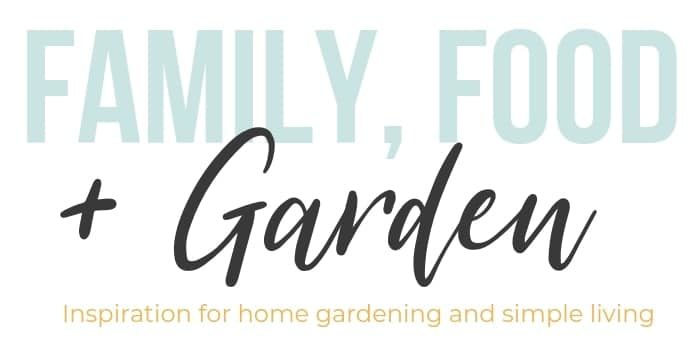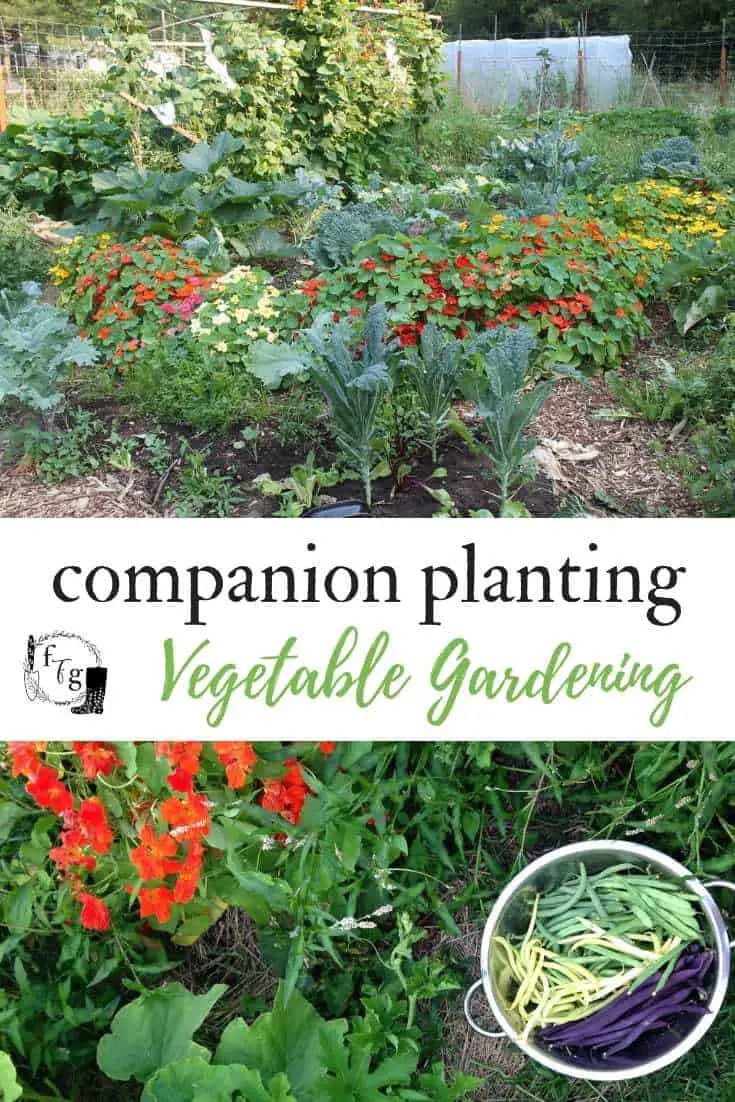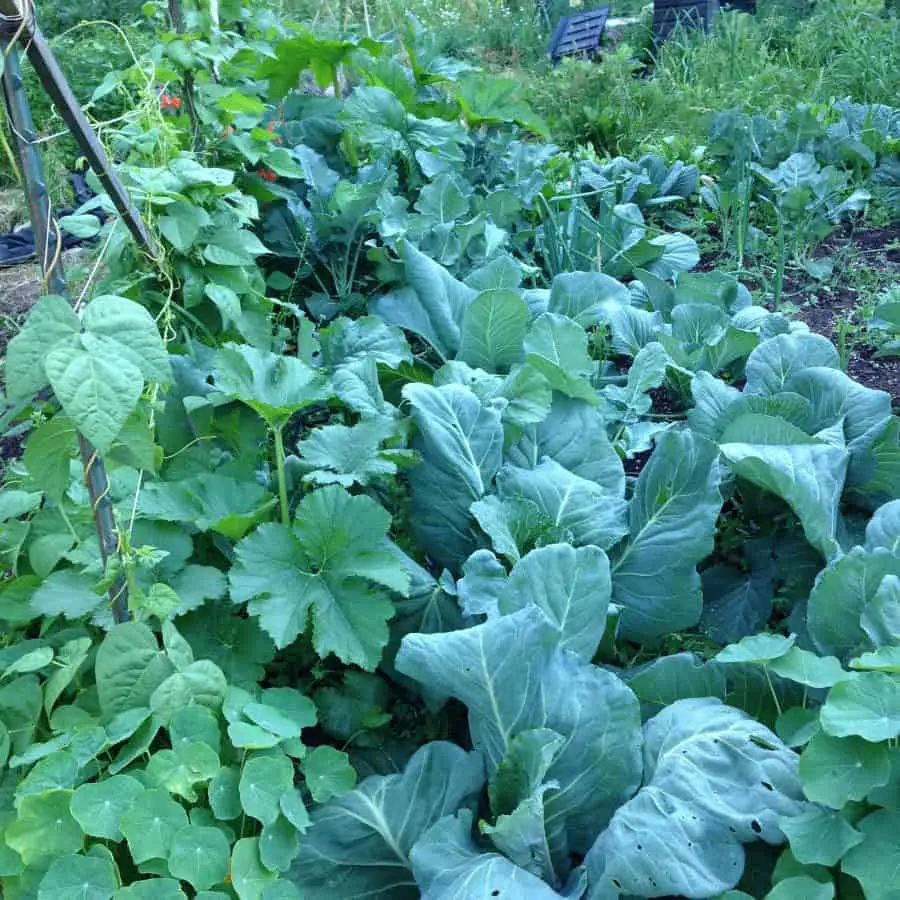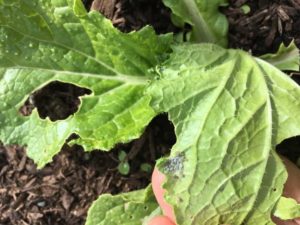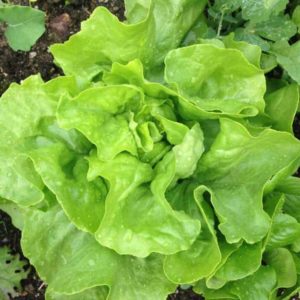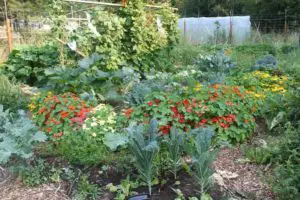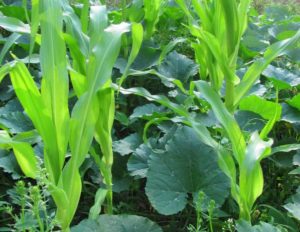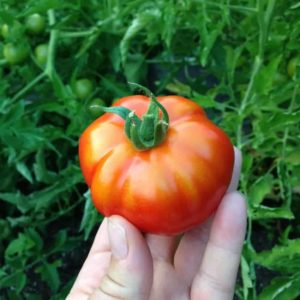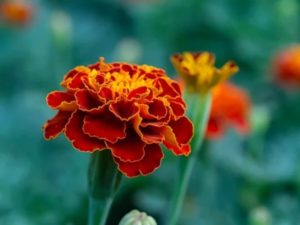Veggie garden companion planting is beneficial to deter pests, attract beneficial insects, and increase yields.
Here are some visual companion planting examples of garden beds and what plants are grown together.
What is Companion Planting?
Companion planting involves growing plants that are mutually beneficial to each other and avoiding ones that don’t.
Never grow these plants side by side:
- Alliums (onions, shallots, leeks, garlic) with the legume (peas, beans, peanuts) family
Some plants are lumped together because of crop rotation, which I’ve written in-depth in this crop rotation post (where you can also learn the plant families that work well together).
Companion Planting Chart
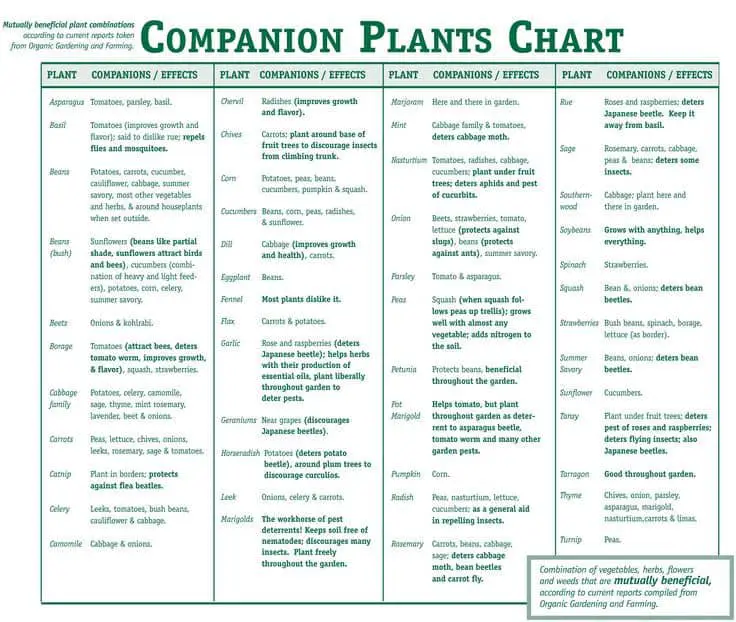
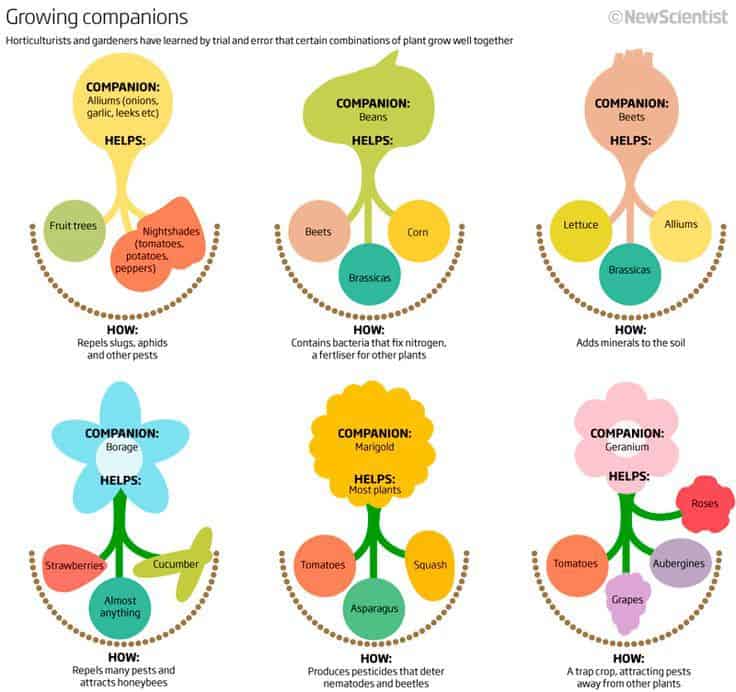
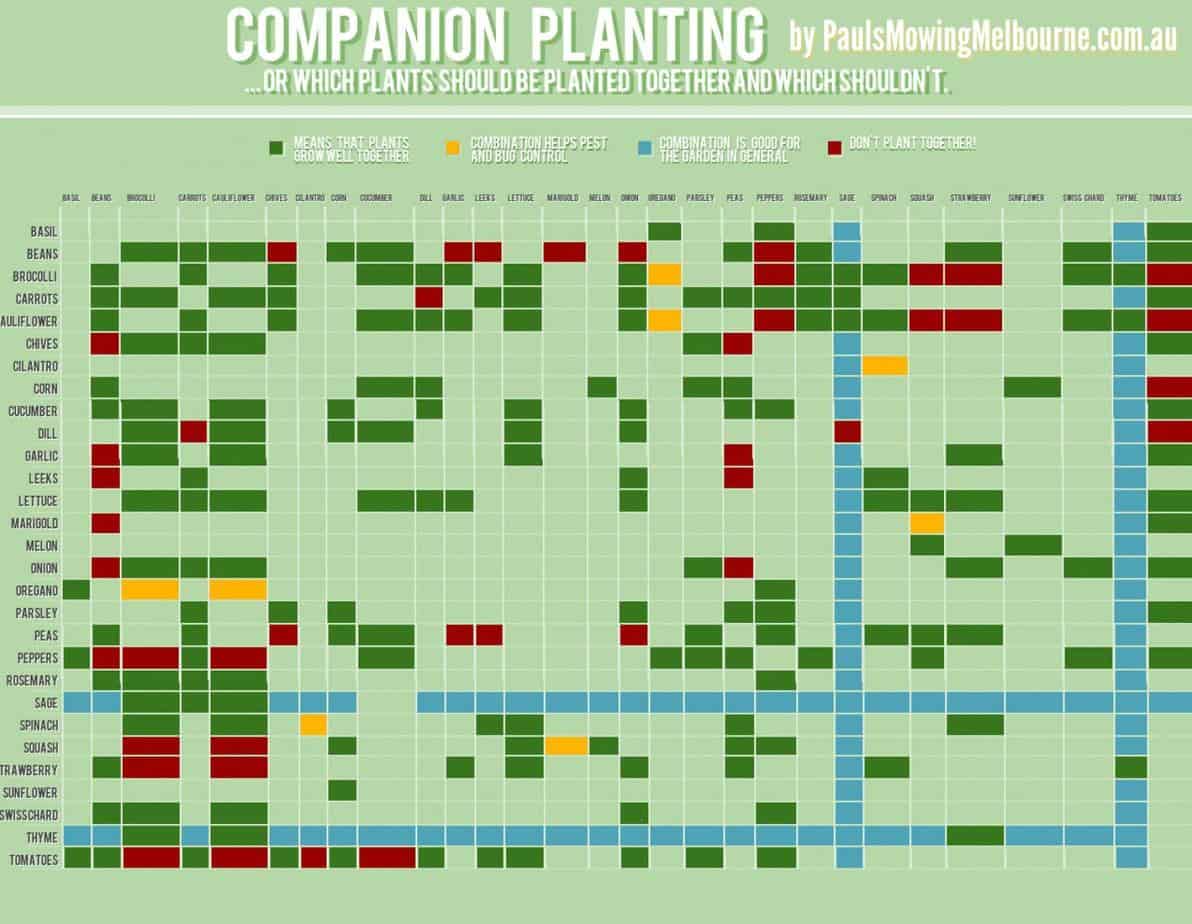
Companion Planting Examples
Here are some examples of companion planting guides.
Companion Planting Example #1
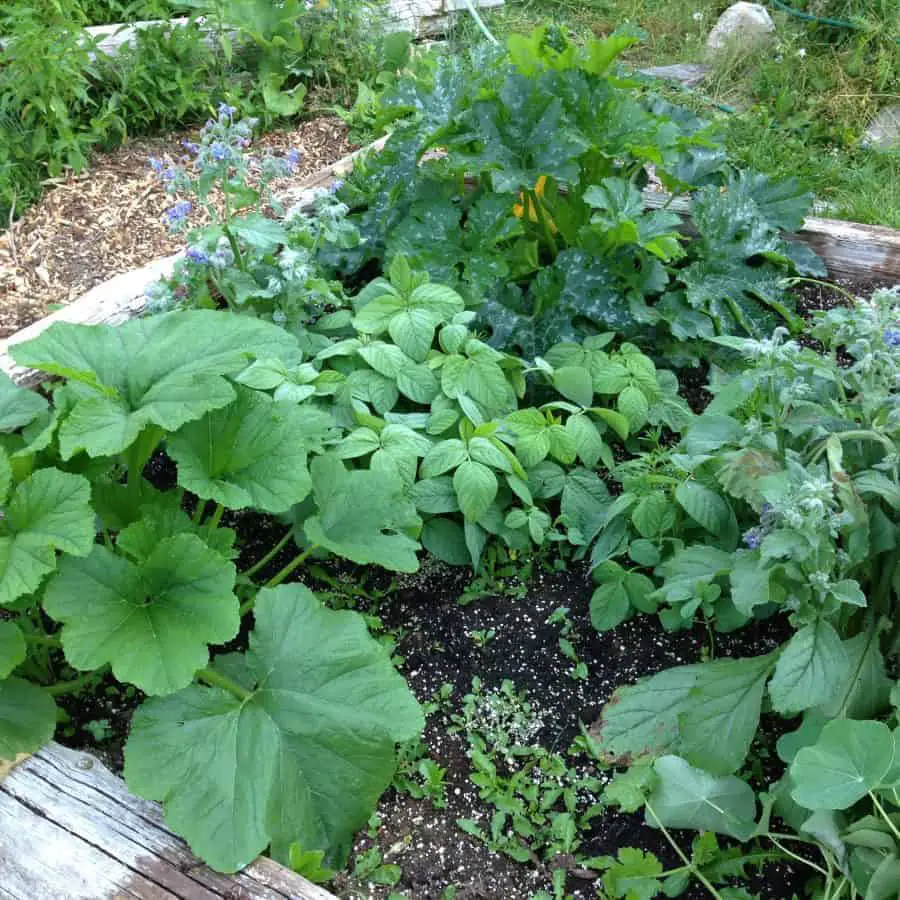
This garden bed has the following companion plants
- Zucchini
- Edamame
- Borage herb/flower
- Nasturtiums
Why these companions work together:
Borage is very attractive to pollinators, so planting it around squash improves pollination. Nasturtiums also attract pollinators and apparently* help to deter squash bugs. Beans and squash grow well together.
* says the companion planting book ‘Tomatoes Love Carrots‘
Companion Planting Example #2
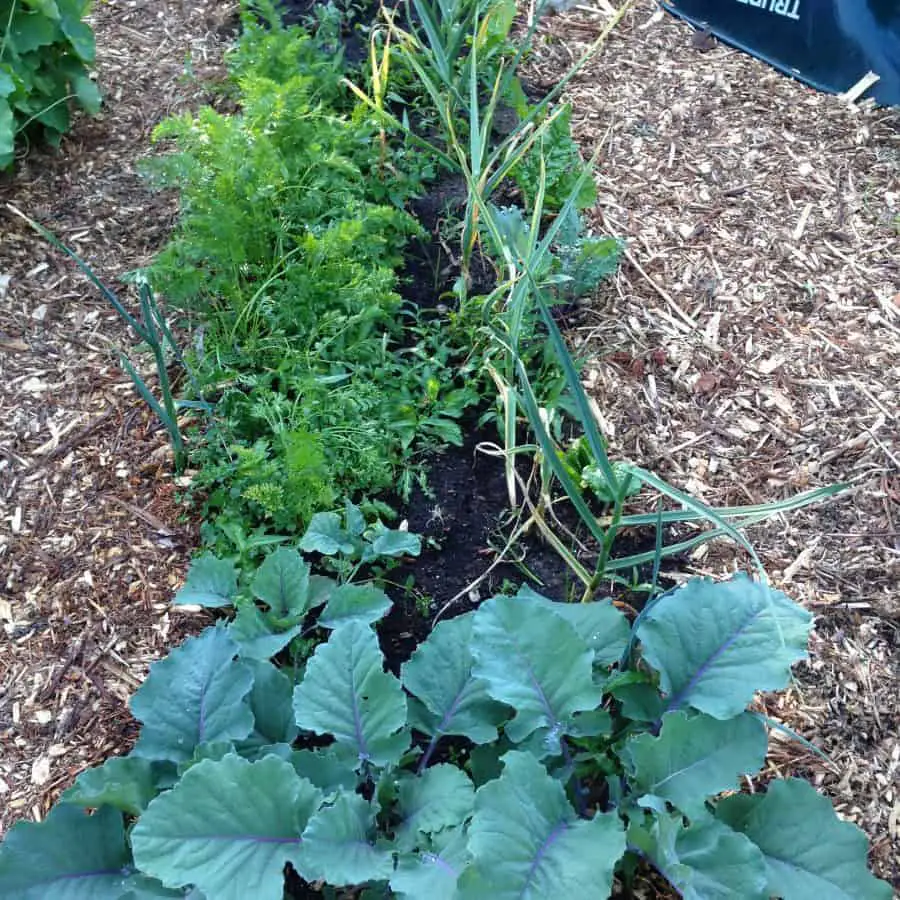
What plants are grown together
- Carrots
- Garlic
- Kohl Rabi
- Kale
- Swiss Chard
Carrots help to attract ladybugs & lacewigs to eat aphids that love kale and kohl rabi. The garlic helps with scent deterrence.
Companion Planting Example #3
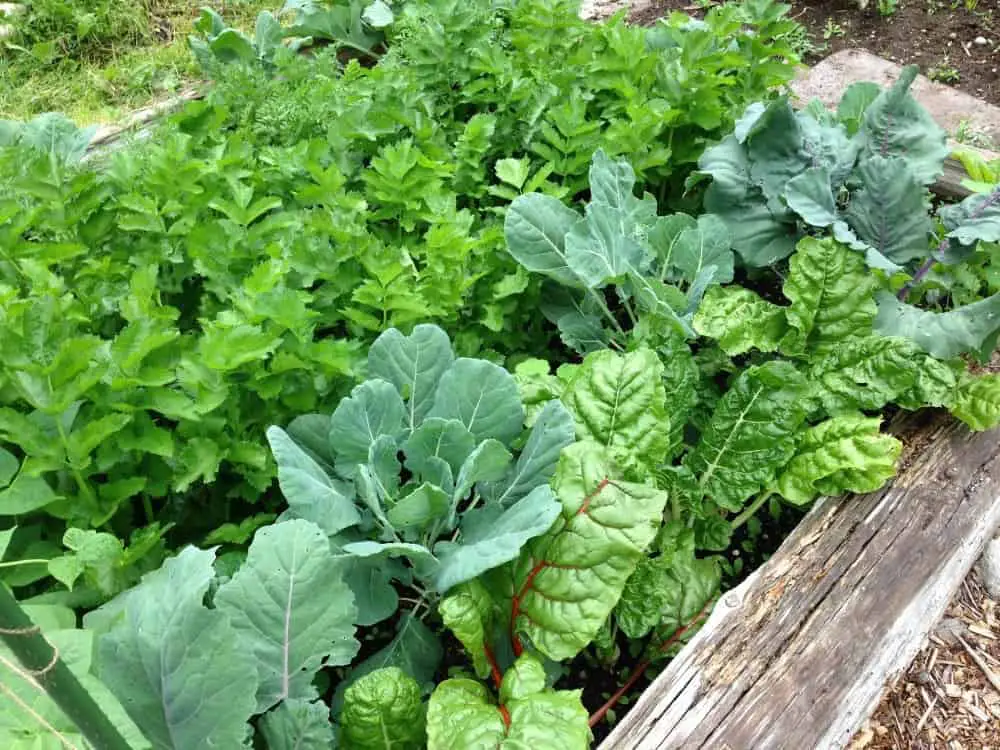
Plants in this garden bed
- Parsnips
- Brussel Sprouts
- Kale
- Swiss Chard
- Kohl Rabi
This garden bed is a mix of crops that will be harvested later in the season for a fall harvest.
Companion Planting Example #4
What plants are in this garden bed
- Nasturtiums
- Cabbages
- Broccoli
- Onions
- Cauliflower
- Vining zucchini
- Pole beans
The nasturtiums attract aphids away from the cabbage, kale and broccoli and the onions help with scent deterrence. The vining zucchini and pole beans help to reduce some of the direct sunlight on these cool season crops to reduce the plants bolting.
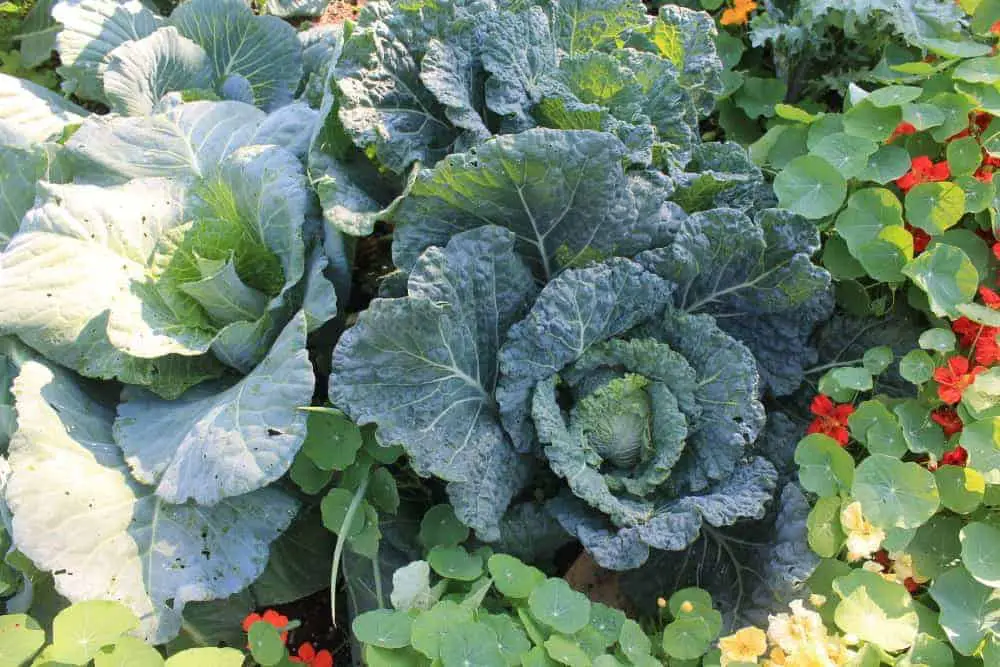
Companion planting might take a little practice but over time it’s well worth it for organic pest control.
